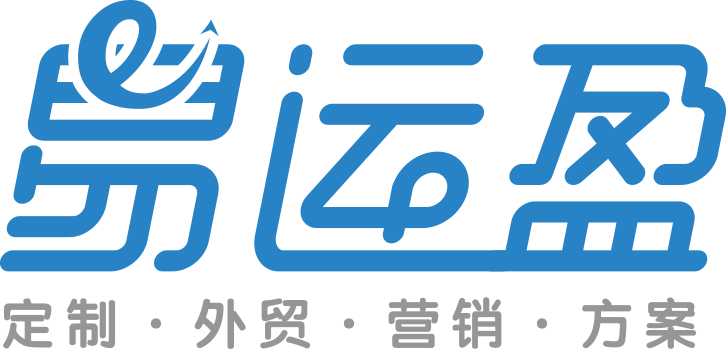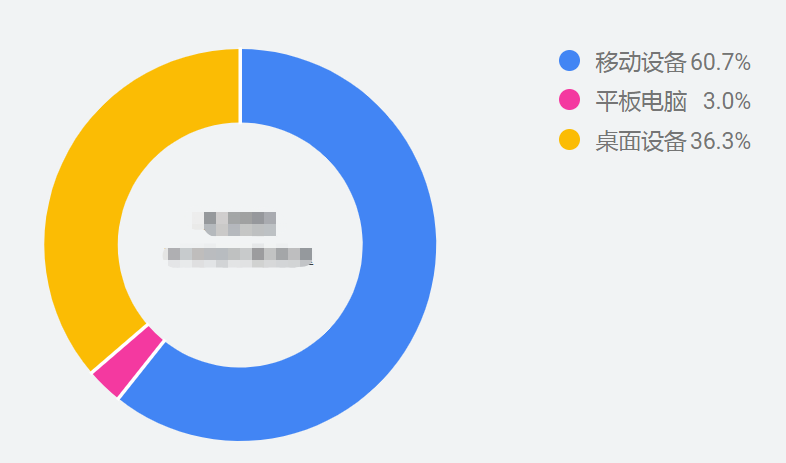5657 Aluminum Alloy Coil: A Guide to Characteristics, Properties, and Applications
Aluminum alloy 5657 is an important material used in making coils for a variety of industrial applications. This guide provides an overview of 5657 aluminum coil including its composition, mechanical and physical properties, temper designations, specifications, sizes, suppliers, pricing, pros and cons, and applications across industries.
Overview of 5657 Aluminum Alloy Coil
5657 aluminum alloy belongs to the 5xxx series of aluminum alloys which are known for their medium to high strength properties and good weldability. The 5657 alloy combines magnesium and magnesium-silicon as its major alloying elements which enables it to attain high strength through heat treatment while also providing good formability and corrosion resistance.
Some of the key features of 5657 aluminum coil are:
- Medium to high strength depending on temper
- Good formability and ductility
- Excellent corrosion resistance
- High fatigue strength
- Good weldability and brazeability
- Low density compared to steel
The combination of properties makes 5657 a versatile aluminum alloy that can be used for making coils for various industrial applications from transportation to consumer goods. Proper control of composition and processing is required to achieve optimal properties in the final coil product.
Understanding the composition, temper designations, mechanical properties, sizes, and specifications is important when selecting 5657 aluminum coils for a particular use case. This guide provides a detailed overview of all such parameters pertaining to 5657 alloy coils.
Composition of 5657 Aluminum Alloy
5657 aluminum belongs to the 5xxx series of aluminum alloys with magnesium and magnesium-silicon as the major alloying elements. The typical composition is as follows:
| Element | % Composition |
|---|---|
| Aluminum | Rest |
| Magnesium | 5.2-6.2% |
| Silicon | 0.4-0.8% |
| Iron | 0.0-0.35% |
| Copper | 0.10% max |
| Manganese | 0.05-0.20% |
| Chromium | 0.05-0.20% |
| Zinc | 0.20% max |
| Other trace elements | 0.05% each, 0.15% total |
The concentration of magnesium is kept between 5.2-6.2% in order to achieve strength through heat treatable precipitates while maintaining formability. Silicon content up to 0.8% improves flow stress.
Trace amounts of iron, copper, manganese, chromium and zinc are added to enhance certain properties. Control of composition within specified limits is critical to achieve target properties.
Mechanical Properties of 5657 Aluminum Alloy
The mechanical properties of 5657 aluminum alloy depend on the temper or heat treatment applied. Some of the key mechanical properties after different tempers are:
| Temper | Yield Strength (MPa) | Tensile Strength (MPa) | Elongation (%) |
|---|---|---|---|
| O (Annealed) | 55 | 130 | 30 |
| H18 | 140 | 170 | 20 |
| H26 | 230 | 270 | 10 |
| H32 | 255 | 285 | 8 |
As seen from the table, the yield strength ranges from 55 MPa in the annealed condition to as high as 255 MPa after H32 temper. The tensile strength varies between 130 MPa to 285 MPa.
Elongation or ductility reduces from 30% to about 8-10% after work hardening and heat treatment. The exact values can vary slightly depending on the processing method.
The combination of good strength and formability makes 5657 suitable for products requiring moderate strength, easy forming and good corrosion resistance.
Physical Properties of 5657 Aluminum Alloy
Some key physical properties of 5657 aluminum alloy are:
- Density – 2.66 g/cm3
- Melting point – Around 615°C
- Thermal conductivity – 130 W/m-K
- Electrical conductivity – 43% IACS
- Modulus of elasticity – 70 GPa
- Poisson’s ratio – 0.33
- Thermal expansion – 24 x 10-6 K-1
The density is about one-third that of steel which provides a weight advantage. The melting point, conductivity, elastic modulus and other properties are in line with 5xxx series alloys.
Temper Designations for 5657 Aluminum
The alloy is produced in various tempers or heat treated conditions to attain the desired strength levels. Some common tempers are:
- O – Annealed
- H18 – Strain hardened to a quarter hard condition
- H26 – Strain hardened to a half hard condition
- H32 – Strain hardened to a three-quarter hard condition
The level of strength increases progressively from O to H32 tempers. Intermediate tempers like H22 and H28 may also be used sometimes. The appropriate temper is chosen based on the required strength, formability, and end application.
Specifications and Compliance for 5657 Aluminum
5657 aluminum alloy coils must meet the chemical composition and mechanical properties laid down in various international and regional specifications. Some of the applicable specifications are:
- ASTM B209 – Standard specification for aluminum and aluminum alloy sheet and plate
- EN 573 – European standards for wrought aluminum alloys
- ISO 6361 – International standard for wrought aluminum alloys
- GB/T 3190-2008 – Chinese standard for 5657 aluminum alloy
- JIS H4000 – Japanese industrial standard for aluminum alloys
Manufacturer’s mill certificates certifying compliance with applicable standards are provided with the coil supply. The buyers must review these certificates to ensure the alloy meets the required specifications.
Available Sizes and Thickness of 5657 Coils
5657 aluminum coils are produced in various sizes with standard widths up to 2100 mm and thickness ranging from 0.2 mm to 6 mm. Some of the common sizes are:
| Thickness (mm) | Width Range (mm) |
|---|---|
| 0.2 – 0.4 | 800 – 1500 |
| 0.5 – 2 | 1000 – 2100 |
| 2 – 6 | 1200 – 2100 |
Thinner coils below 2 mm thickness are commonly used for applications like electronics, batteries, cables, and flexible packaging. Thicker coils from 2 mm to 6 mm are popular for applications like treadplate sheets, aerospace structures, storage tanks.
The coils can be supplied in customized widths and thicknesses depending on the end product requirements.
Comparison of 5657 with Other 5xxx Alloys
5657 can be compared with other similar 5xxx alloys like 5052 and 5083 which also contain magnesium as the principal alloying element. A comparison of their properties is given below:
| Alloy | Key Characteristics |
|---|---|
| 5657 | Medium strength, excellent formability and corrosion resistance, high fatigue strength |
| 5052 | Moderate strength, excellent corrosion resistance, good workability and weldability |
| 5083 | High strength, excellent corrosion resistance, good formability and weldability |
While 5083 is the strongest, 5657 provides the best combination of moderate strength and formability. 5052 is the most versatile and widely used alloy thanks to good corrosion resistance.
So 5657 can be selected when moderate strength, fatigue resistance, and ease of forming are critical while corrosion resistance is less important.
Advantages and Limitations of 5657 Aluminum
Some of the main advantages of 5657 aluminum alloy are:
- Medium strength levels after heat treatment
- Excellent formability in annealed condition
- High fatigue strength compared to other alloys
- Low density gives lightweight advantage over steel
- Good oxidation and corrosion resistance
- Higher strength compared to 5052 with only slightly lower corrosion performance
- Readily brazed and welded using various methods
However, 5657 also has certain limitations:
- Lower strength than alloys like 6061 and 7075
- Susceptible to intergranular corrosion if improperly heat treated
- Lower corrosion resistance than purely magnesium alloys like 5052
- Prone to work hardening during machining which requires optimized parameters
- More expensive than popular alloys like 3003 and 5052
So for very high strength requirements, 6xxx or 7xxx alloys may be better. And for applications primarily needing corrosion resistance, 5052 is more suitable.
Price and Availability
5657 aluminum alloy coils are moderately priced, typically 10-15% higher than equivalent coils of 5052 alloy.
5657 Coil Price Per Metric Ton – 2 mm Thickness
| Temper | Price Range |
|---|---|
| O | $2700 – $2900 |
| H18 | $2900 – $3100 |
| H26 | $3100 – $3300 |
| H32 | $3300 – $3500 |
Thicker coils from 4-6 mm may cost up to 20% more than the above prices for 2 mm thickness. The prices vary based on quantity and prevailing raw material prices.
5657 coils are readily available from leading manufacturers globally including Novelis, Constellium, Hydro, Hindalco, Southwest Aluminum, and others. There are numerous suppliers and distributors serving local markets.
Applications and Uses of 5657 Aluminum Alloy Coil
Some of the major applications and uses of 5657 aluminum alloy coil are:
Transportation
- Automotive body panels like hoods, trunks
- Truck and trailer flooring
- Railway carriage sheet and structures
- Aerospace fuselage, bulkheads
Industrial Applications
- Process equipment like tanks, pipes, valves
- Chemical handling and transportation
- Oil and gas platforms, liquefied natural gas (LNG) tankers
- Heat exchangers and cooling coils
Consumer goods
- Refrigerator liners and panels
- Air conditioner fins and cover sheets
- Insulated food containers
- Solar heat reflectors
Packaging
- Flexible aluminum packaging for food, pharmaceuticals
- Beverage cans
- Aluminum foil and sheets
Construction
- Roofing, cladding, and facades
- Decorative sheets for interiors
- Insulated panel systems
Other Uses
- Treadplate flooring sheets
- Coils for rerolling into various profiles
- Alloy for machining into components
- Electrode coil for welding
The excellent formability of 5657 in annealed temper allows producing complex shapes for body panels. The higher strength variants provide the necessary mechanical performance for structural parts while maintaining light weight.
Overall, 5657 provides an optimal balance of moderate strength, good bendability, weldability, and corrosion resistance required in many applications across industries.
5657 Aluminum Alloy Coil – Frequently Asked Questions
Q: What are the typical uses of 5657 aluminum alloy?
A: The excellent formability and medium strength of 5657 make it suitable for body panels in auto and rail transport, industrial equipment like heat exchangers and tanks, and consumer goods like refrigerator liners and solar reflectors. It also sees use in treadplate sheets, packaging foils, aluminum cans, and cladding/roofing applications.
Q: How does 5657 differ from other 5xxx series alloys like 5052 and 5083?
A: 5657 has slightly lower corrosion resistance than 5052 but higher strength. It has better formability than 5083 with moderately high fatigue strength. So 5657 combines good bendability and higher strength versus commonly used 5052.
Q: What are the typical temper conditions for 5657 coils?
A: Common tempers are O, H18, H26 and H32. O is annealed soft condition. H18, H26 and H32 correspond to quarter hard, half hard and three-quarter hard strain hardened tempers with progressively higher strength.
Q: Does 5657 alloy need any special welding or machining precautions?
A: 5657 has good weldability by various welding processes. During machining, high cutting speeds and low feeds are preferred to avoid work hardening issues. Appropriate cutting tools should be used to get good finish and dimensional accuracy.
Q: What is the pricing range for 5657 aluminum coils?
A: For 2 mm thickness, annealed 5657 coils cost around $2700 – $2900 per metric ton, going up to $3300 – $3500 per ton for H32 temper. Thicker coils are approximately 20% more expensive.
Q: What are the corrosion resistance ratings of 5657 aluminum?
A: In annealed O temper, 5657 provides good corrosion resistance. However, in strain hardened tempers, susceptibility to intergranular and stress corrosion cracking increases if improper heat treatment is used. Proper practices will ensure adequate corrosion performance.
Q: Is 5657 alloy readily available with global manufacturers?
A: Yes, 5657 alloy coils are produced in high volumes by major suppliers like Novelis, Constellium, Hydro and Southwest Aluminum. There are numerous distributors in local markets providing ready availability.
Q: What specifications does 5657 aluminum alloy conform to?
A: 5657 alloy coils must meet composition limits and tensile properties as per ASTM B209, EN 573, ISO 6361 standards. Manufacturer mill certificates certify conformance to applicable specifications.





